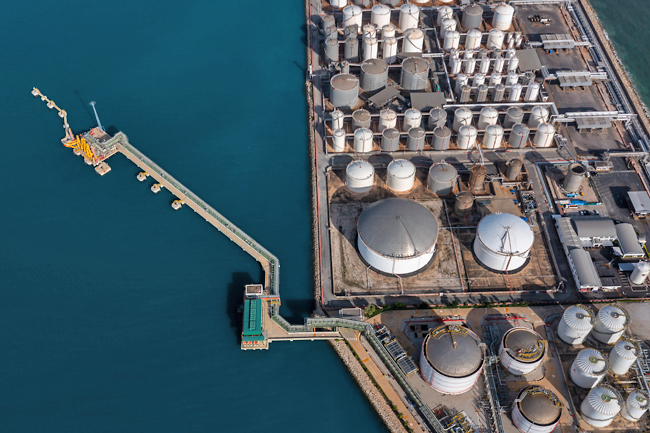ANN/THE KOREA HERALD – The South Korean government is likely to propose increasing imports of liquefied natural gas (LNG) from the United States (US) as a quid pro quo to maintain zero tariffs on Korean-made automobiles, steel and aluminium under the second Trump administration.
According to industry sources yesterday, Deputy Trade Minister Park Jong-won will be in Washington until Friday to meet with senior officials from the Department of Commerce and the US Trade Representative. The visit aims to gather details on Trump’s tariff plans and convey Korea’s stance on the matter.
Later this month, Industry Minister Ahn Duk-geun is also expected to visit the US for negotiations with his American counterparts, including the nominee for Secretary of Commerce Howard Lutnick.
While the US has not specified its tariff plans for Korea, Trump announced that, starting March 12, a 25 per cent tariff will be imposed on steel and aluminium imports from all countries, with automobiles potentially facing tariffs from April. Notably, Korea has benefited from zero tariffs on cars since 2016, with the US market accounting for 49.1 per cent of Korea’s automobile export revenue as of last year.
Industry insiders expect the Korean government to use LNG imports from the US as a bargaining chip to neutralise potential tariffs, particularly on automobiles. Aligned with his strategy to expand domestic oil production, Trump has vowed to increase natural gas exports by easing regulations on local producers.

Following Trump’s push for increased LNG exports, the state-run Korea Gas Corporation, which manages roughly 80 per cent of the country’s LNG imports, is reportedly considering selecting several US LNG producers as preferred bidders for long-term supply contracts. If Korea replaces its decadeslong supply agreements with Qatar and Oman, which ended late last year, with US contracts, the import value is projected to reach approximately USD4.6 billion.
This figure represents 8.3 per cent of Korea’s USD55.7 billion trade surplus with the US from the previous year, signaling a potential reduction in the US trade deficit. Korea has imported an average of 8.98 million tonnes of LNG annually from the Middle East since the 1990s.
“If Korea becomes a key trade partner in LNG, Trump could possibly walk back on his tariff plans for the country,” said an international trade professor at Myongji University Kim Tae-hwang.
“Japan has already entered into an import agreement with the US, and the EU is currently in discussions to do the same. Korea’s industry minister is likely to use LNG imports as leverage in discussions with US officials.”
Despite the potential trade benefits, significantly boosting LNG imports could impose additional costs on Korea’s energy companies, which would need to convert power plants from oil to LNG.
However, Kim emphasised that alternative options for increasing US imports, such as agricultural products, are limited.
“We already import a significant amount of agricultural products from the US,” Kim said.
“Further raising that number could be challenging due to competition with Australia and potential backlash from local farmers.”


